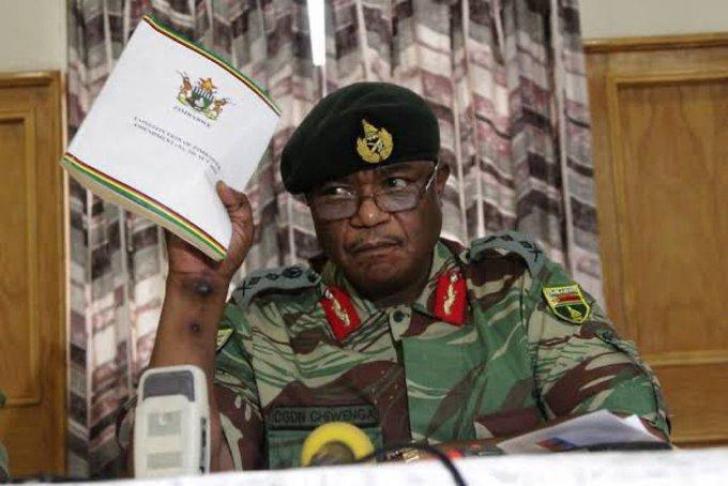News / National
Mnangagwa plotted coup against Mugabe for years, claims ex-CIO
21 Oct 2024 at 07:03hrs |
0 Views

In a startling revelation, former Central Intelligence Organisation (CIO) Deputy Director General Lovemore Itai Mukandi has claimed that President Emmerson Mnangagwa had been plotting the 2017 coup against former President Robert Mugabe for years, with roots tracing back to the Gukurahundi massacres of the 1980s.
In a recently released video and his new autobiography titled How Mnangagwa Blindsided Robert Mugabe and Grabbed Zimbabwe, Mukandi asserts that Mnangagwa, alongside General Constantino Chiwenga and the late Perence Shiri, felt threatened by the possibility of prosecution for their roles in the Gukurahundi atrocities. Mukandi's claims shed new light on the motivations behind the coup that ultimately led to Mnangagwa's ascension to power.
Mukandi elaborated that Mugabe had indicated his intention to appoint Dr. Sydney Sekeramayi as his successor, which further fueled Mnangagwa and Chiwenga's fears. The former CIO official suggests that this potential leadership change drove the two men to orchestrate the coup, believing that a leader they did not trust could initiate their prosecution for past crimes.
According to Mukandi, Mnangagwa had long intended to seize power through unconstitutional means, arguing that he was unelectable in a fair political environment. "Mnangagwa had all along planned to grab power, knowing he couldn't win an election," Mukandi stated in the video.
His autobiography, now available on Amazon, aims to provide a firsthand account of the events leading to the coup and the political machinations at play within the ruling party. Mukandi's claims could reignite discussions around accountability for past human rights violations and the complex dynamics of Zimbabwe's political landscape.
As the country continues to grapple with its turbulent history, Mukandi's revelations may provoke further scrutiny of Mnangagwa's leadership and the legacy of the Gukurahundi massacres, which have long haunted Zimbabwean politics.
In a recently released video and his new autobiography titled How Mnangagwa Blindsided Robert Mugabe and Grabbed Zimbabwe, Mukandi asserts that Mnangagwa, alongside General Constantino Chiwenga and the late Perence Shiri, felt threatened by the possibility of prosecution for their roles in the Gukurahundi atrocities. Mukandi's claims shed new light on the motivations behind the coup that ultimately led to Mnangagwa's ascension to power.
Former CIO Deputy Director General Lovemore Itai Mukandi, in a video, claimed that Emmerson Mnangagwa had been planning the 2017 coup for years, with the roots of the plot taking hold after the Gukurahundi massacres.
According to Mukandi who has just published his… pic.twitter.com/cWXap6F4Zi— Hopewell Chin’ono (@daddyhope) October 20, 2024
Mukandi elaborated that Mugabe had indicated his intention to appoint Dr. Sydney Sekeramayi as his successor, which further fueled Mnangagwa and Chiwenga's fears. The former CIO official suggests that this potential leadership change drove the two men to orchestrate the coup, believing that a leader they did not trust could initiate their prosecution for past crimes.
According to Mukandi, Mnangagwa had long intended to seize power through unconstitutional means, arguing that he was unelectable in a fair political environment. "Mnangagwa had all along planned to grab power, knowing he couldn't win an election," Mukandi stated in the video.
His autobiography, now available on Amazon, aims to provide a firsthand account of the events leading to the coup and the political machinations at play within the ruling party. Mukandi's claims could reignite discussions around accountability for past human rights violations and the complex dynamics of Zimbabwe's political landscape.
As the country continues to grapple with its turbulent history, Mukandi's revelations may provoke further scrutiny of Mnangagwa's leadership and the legacy of the Gukurahundi massacres, which have long haunted Zimbabwean politics.
Source - online
Join the discussion
Loading comments…



























